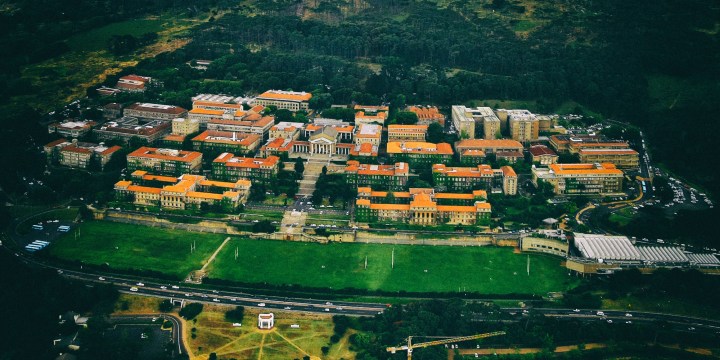LETTER TO EDITOR
The destruction of capitalism is necessary for real transformation

It is common knowledge that universities are structured as a business and rely on funders to ensure their sustainability as a business. We can therefore only assume that satisfying their funders then becomes an important priority, writes Khadra Ghedi Alasow.
On Wednesday 7 August the University of Cape Town invited human rights activist Dr Steven Salaita to give the TB Davie Memorial Lecture. He is well-known for his critiques on institutions that hide behind the banner of academic freedom while continuing to support the oppression of others and is widely outspoken about the injustice Palestinians face.
Although the lecture itself was inspirational and eye-opening, one cannot help but wonder whether it was used as a superficial gesture to show the wider public that the university supports the cause, without materially distancing itself. While UCT claims to be considering cutting academic ties with Israeli institutions, there is a lot of ambiguity around why the university cannot simply take a stance. Staff and students have been pushing the university to dissociate itself from systems of oppression for many years, and up until this day we are left with bureaucratic excuses.
Salaita explains to us that economic obedience and freedom have a close connection and that outside forces (donors) are often called into action if one dares to speak out. Threats of retracting funding disciplines universities to remain silent. When confronted, the university hides behind bureaucracy or the banner of “academic freedom”. During apartheid, universities hid behind the same notion and while often being actual supporters of the system, they were excused from criticism by hiding behind academic freedom. Where the money comes from and how it is used cannot be ignored if we really want to take decolonisation seriously. Funding comes with strings attached. Although these strings are not made explicit, we cannot afford to ignore them.
Capitalism is the elephant in the room in many decolonial discussions. Looking at the history of colonialism, capitalism was integral to the development of Western imperialism. While the race was the face, capitalism was the backbone. Racial segregation through legislation was a tool for administering capitalist structures, of which the most important was cheap labour.
Many structures that aim at bringing decolonial change defer class as “an issue that will be discussed later, once we have decolonised our institutions”. Our understanding of decolonisation often only narrowly looks at race and neglects capitalist structures which are integral to institutional racism. Of course, race and class have a close relationship as those at the receiving end of exploitation are often people of colour, while wealth accumulation remains in the hands of a white minority. But looking selectively at race will only change the face and not the colonial foundations.
The problem with capitalism is that its “invisible hand” is able to change and adapt to any system. After apartheid, the capital was able to continue by manifesting itself in the neo-liberal state we have today. Capitalist operations are not only nurtured through exploitation, but also through acts of philanthropy. Funding donations have in some cases become the evil that prohibits and restricts progressive change from happening.
Our universities evidently preference their sources of funding over the freedom of students. Money equals power and the slow pace of transformation at our universities is closely tied to their obligation to satisfy the funders. Funding is so deeply integrated and hidden in decision-making that it becomes difficult for the average person to follow.
So, we should ask ourselves; can we really leave it up to the capitalists to decide how we should decolonise when they are the beneficiaries of the colonial structure? It is common knowledge that universities are structured as a business and rely on funders to ensure their sustainability as a business. We can therefore only assume that satisfying their funders then becomes an important priority. The call for free education is an example showing that students are fed up with this structure.
Furthermore, the calls for decolonisation that erupted in the 2015 student protests highlight UCT’s bad reputation when it comes to transformation. While sourcing Salaita to give this progressive lecture may seem impressive at the forefront, it is difficult to see it as transformative when we have not seen any material changes in UCT that are in line with the points he spoke about.
Up until now, there has been a lot of talk, but no action. The university prides itself on the small visible changes of transformation, yet in reality, the fundamental colonial structures that coincide with capitalism still persist. We need to recognise the destruction of capitalism and integrate it into the decolonial project if we do not want to end up with a superficial transformation that does not attend to the deeper colonial roots. DM
Khadra Ghedi Alasow is a masters student in environmental and geographical science at the University of Cape Town.

















